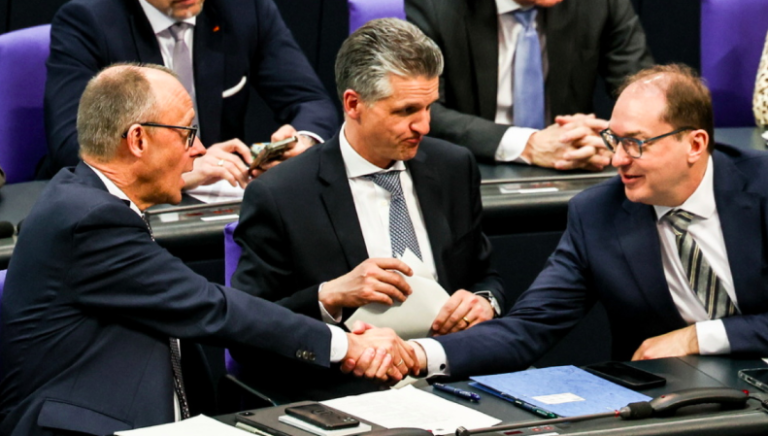Germany’s parliament voted on Tuesday (March 18) by a large majority to override the constitutionally mandated spending cap. Going forward, defense and security expenditures will be exempt from the restriction.
This marks a historic shift for Germany, which has traditionally been extremely cautious about debt and deficit management. The decision comes amid heightened tensions in Europe due to Russia’s invasion of Ukraine and the collective and individual rearmament efforts of European nations.
The “debt brake,” enshrined in Germany’s constitution, limits federal borrowing to just 0.35% of the country’s GDP. Under current conditions, this cap is around €15 billion.
The CDU/CSU, which won the recent elections, along with the SPD and the Greens—two of the three parties in the outgoing governing coalition—voted in favor of the constitutional amendments.
In total, 513 MPs supported the changes, while 207 voted against. The required two-thirds majority for immediate approval was 489 votes. The far-right AfD, the Left, and the Liberal party opposed the measure.
The next step for implementing the measure is its approval by Germany’s Upper House (Bundesrat) with the same two-thirds majority. The vote is set for Friday.
With this decision, €500 billion will be allocated to boost Germany’s defense spending, as well as for green investments and infrastructure projects.
This aligns with the campaign promises of Friedrich Merz, who has begun talks to form a government.
During the parliamentary debate, Merz stated that Germany had been lulled into “a false sense of security” over the past decade. The decision, he argued, is “nothing less than the first major step toward a new European defense community,” which would also include non-EU countries.
Ask me anything
Explore related questions





